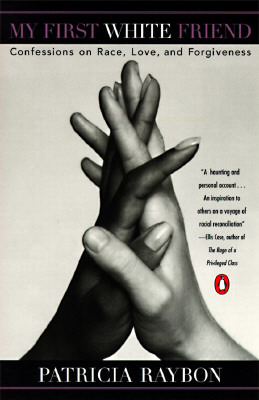One Book One Meeting: Racism and White Privilege
This is not the post I had scheduled for today, but in light of different discussions regarding racism on the Christian Quaker Facebook page, I have decided to share an experience from my Meeting. Mountain View Friends Meeting has a Racism and White Privilege group that meets monthly, and discusses a wide range of topics from micro aggressions to nurturing our children. Last month the group met to discuss book titles that might help us explore racism and white privilege. As co-clerk for the library committee and as a Friend of color, I was and continue to be very pleased with the titles that were brought forth. More importantly, I am pleased with the discussions that are taking place around these books. We have not chosen a book at this time, but we are all reading the suggested titles and sharing them with each other. It has been such a joy to receive calls from Friends saying that they have finished one book and are ready for another. It has been a joy listening to the new light that some of these books have shed on the topics of racism and white privilege. Whether or not we ultimately decide to pursue One Book One Meeting, I am so happy that we are reading together, sharing together, and listening together.









Thanks for posting this!
ReplyDeleteDear Regina Renee,
ReplyDeleteYes! Thanks for Posting this! I read, "My Mother the Cheerleader" ("Acts of Courage come in all shapes and sizes") and couldn't put it down.
I thought that author, Robert Sharenow- Senior Vice-President of Nonfiction and Alternative Programming at A&E Network and writer and producer of a variety of shows ("My Mother the Cheerleader" is his first novel)- did a sensitive and convincing job of narrating this story through the eyes of 13-year-old Louise, Lorraine Collins- an only child living with her single mother in a poor section of New Orleans in 1960: the time when six-year-old Ruby Bridges, a child of color, was brought to her school each morning in a black Pontiac sedan, accompanied by armed federal agents as "cheerleaders" chanted to the large crowd of angry, protesting parents and townspeople: "Two, four, six, eight, we don't want to integrate!"
I found the character development of a number of characters in the novel to be simple, honest and forthright. It provided a very personal perspective on the myopic views of race in that place and time. Yet it also portrayed in a very realistic way how, through one tragedy or another, inner transformation can happen through which tightly held convictions to white supremacy can loosen and begin shift even among the most staunch.
I hope he write a sequel!
~Eric Smith